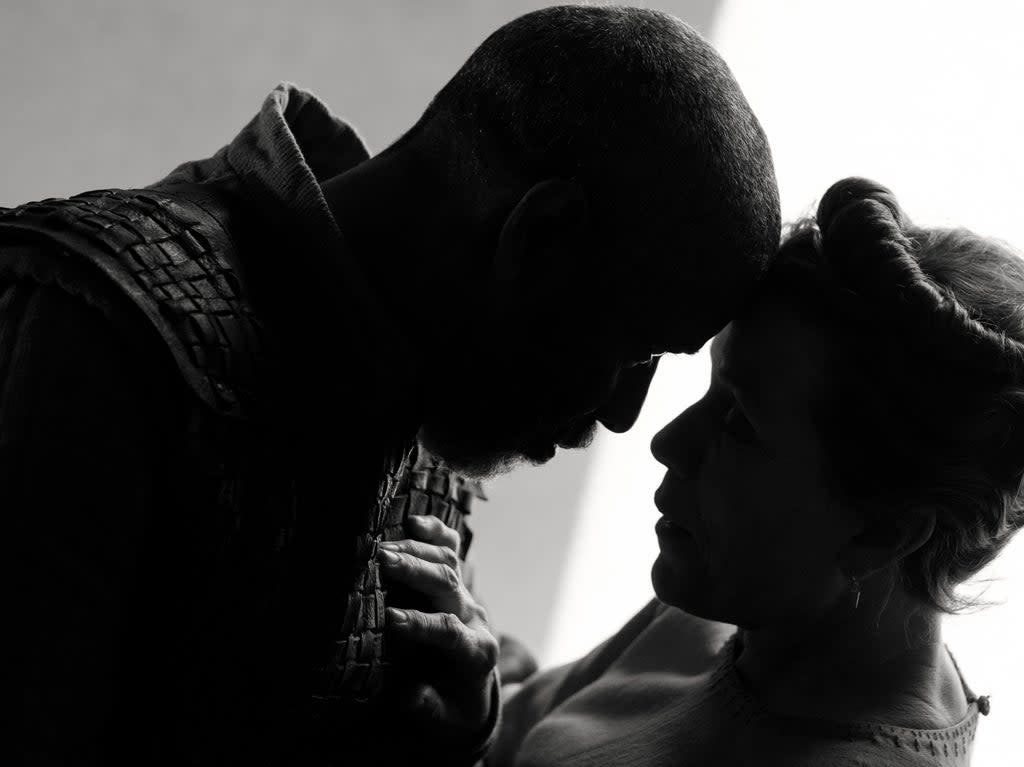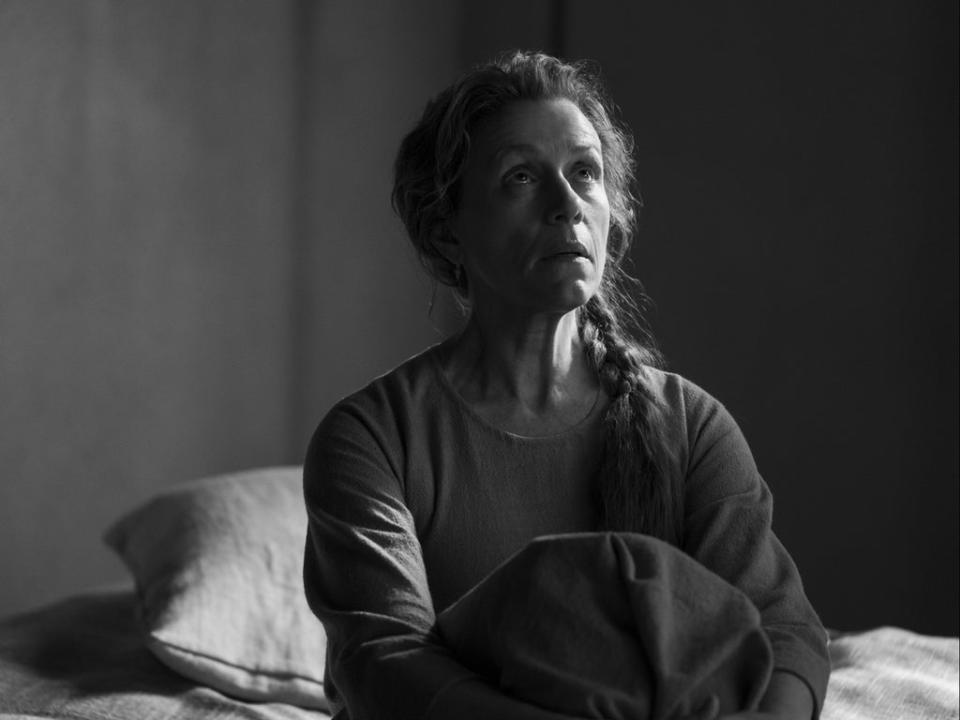The Tragedy of Macbeth review: Denzel Washington’s wearier version of character makes for radical viewing

Dir: Joel Coen. Starring: Denzel Washington, Frances McDormand, Bertie Carvel, Alex Hassell, Corey Hawkins, Harry Melling, Brendan Gleeson. 15, 105 minutes
A flock of ravens circle over Joel Coen’s The Tragedy of Macbeth. They’re a literal manifestation of the avian imagery Shakespeare summons in his play, the raven in particular a harbinger of ill fate. In Coen’s adaptation, the ravens represent the ever-watchful eyes of the Weïrd Sisters, who we first stumble across as one lonely crone, played by theatre veteran Kathryn Hunter. Her knotted body grows in stature as she delivers her prophecy – that Macbeth will be king – as her arms jut out to form fleshy, makeshift wings. Later, the transformation will be complete, and birds will burst out from the mist. It’s only when we catch her reflection in a body of water that we see the one figure multiply into three. The flock is complete.
Coen’s adaptation is heavy with this kind of symbolism, plucked reverently from Shakespeare’s original text. It’s long been a hallmark of the films he made with his brother Ethan – each of them rich, puzzle box films that use every element of composition and mood to whisper their true meaning to their audience. The Tragedy of Macbeth marks the first of Joel’s films made without Ethan (who, it seems, has entered some vague state of retirement). It’s also the first he’s made with Denzel Washington, who takes up the lead role with a remarkable sense of control over Shakespeare’s language. Though it’s tempting to question how the vision of one of America’s most popular filmmakers might imprint itself on such a classic text, that somewhat misses the point here. Macbeth will always be fertile ground for an artist. And Coen’s interest is primarily in the power already contained within Shakespeare’s words, not in his own interpretation of them.
It’s a bold move to keep with tradition when Coen’s Macbeth is one of several dozen onscreen iterations, dating all the way back to J Stuart Blackton’s adaptation from 1908. But the director not only leans into history, but weaponises it – piling it up on the shoulders of Washington’s Macbeth, already heavy with the words of prophecy uttered by the witches (“All hail, Macbeth, that shalt be king hereafter!”). Audiences will be familiar with where that leads us: to the bloody murder of King Duncan (Brendan Gleeson), at the bidding of Lady Macbeth (Frances McDormand), and the fear and suspicion thereafter, which leads only to more destruction and death.
Coen has truncated certain scenes, as opposed to excising them whole, while imaginatively transitioning between scenes to allow each event to bleed into the next – drawing Macbeth ever closer to his inevitable, doomed fate. A tent fades into a castle corridor. The path of a burning letter is followed up, floating into the night sky. There’s a sense of constant propulsion, hastened by the repeated sounds of drumming or the drip of blood on a stone floor. The film was shot entirely in black and white, on an LA soundstage. The deliberate artifice of Bruno Delbonnel’s cinematography evokes a whole cluster of influences: the sharp angles of German Expressionism, the fascination with faces that marked Ingmar Bergman’s work, the rich intensity of Orson Welles’s 1948 adaptation, or, more simply, the play’s long history of onstage performance. It’s the direct opposite, and perhaps necessarily so, of the last big-screen Macbeth – Justin Kurzel’s 2015 film, which buried itself in all the mud and grit of true history.

If there’s anything radical about The Tragedy of Macbeth, it’s in the choice of leads. The roles of Macbeth and his lady are usually filled by younger actors (Saoirse Ronan and James McArdle are currently starring in a production at the Almeida Theatre). Their twinned lust for power is usually given a feverish, sexual dimension. But Coen has not only surrounded his leads with steady, tempered performances – from Corey Hawkins as Macduff to Bertie Carvel as Banquo – but has directed both Washington and McDormand to take a wearier, more cool-headed approach. This couple possesses the self-awareness that comes with age and, when Washington utters “blood will have blood”, it’s done with quiet resignation to his own fate.
McDormand carves out a little space for anger, though underplaying her performance so early on gives her further to leap when Lady Macbeth must succumb to her eventual madness. But, if anything, it only adds to the terrible weight of inevitability that hovers over Coen’s film. In his Tragedy of Macbeth, no amount of wisdom, and no sense of caution, can save those fated for destruction.


